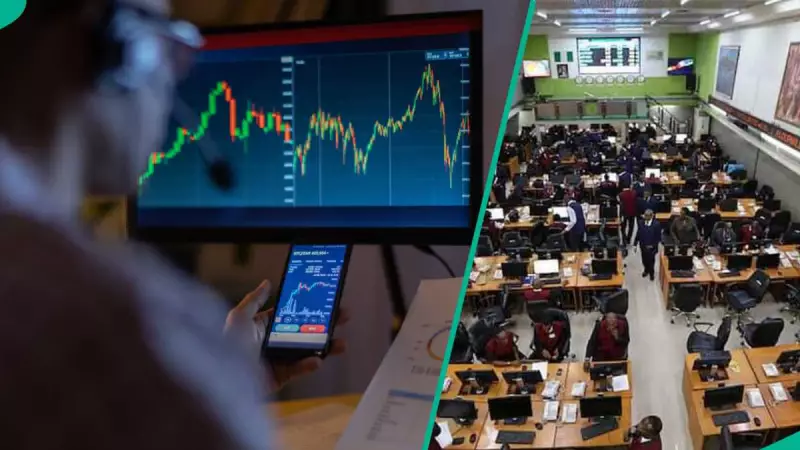
The Nigerian stock market continued its disappointing performance on Tuesday, leaving investors reeling as approximately ₦90 billion evaporated from market capitalization. The bearish trend that has characterized recent trading sessions showed no signs of abating, creating anxiety among market participants.
Market Capitalization Takes Significant Hit
Data from the Nigerian Exchange Limited revealed that the market capitalization dropped to ₦55.126 trillion, representing a substantial decline from the previous day's closing figure. This significant loss occurred despite some moments of positive trading activity during the session.
Key Index Plunges Below Critical Level
The All-Share Index, a crucial benchmark for measuring market performance, fell by 0.16 percent to settle at 99,217.60 points. This drop pushed the index further below the psychological 100,000-point threshold that investors closely monitor.
Sector Performance Reveals Widespread Decline
Market analysis showed broad-based declines across multiple sectors, with banking and industrial goods stocks among the hardest hit. The market breadth remained negative as the number of declining stocks outnumbered advancing ones, reflecting the pervasive bearish sentiment.
Top Losers Drag Market Downward
Several major stocks contributed significantly to the day's losses. Notable decliners included Nigerian Breweries, which saw its share price drop substantially, along with other blue-chip companies that failed to withstand the selling pressure.
Investor Sentiment Turns Cautious
Financial analysts observed that investor confidence has been shaken by the persistent downturn. Many market participants are adopting a wait-and-see approach, hesitant to commit new funds amid the uncertainty.
Economic Factors Influencing Market Performance
Several macroeconomic challenges continue to weigh on the market, including inflation concerns, currency volatility, and evolving fiscal policies. These factors have combined to create a challenging environment for equity investments.
Market experts suggest that investors should maintain a long-term perspective despite the current volatility, while carefully monitoring corporate fundamentals and economic indicators for signs of recovery.





